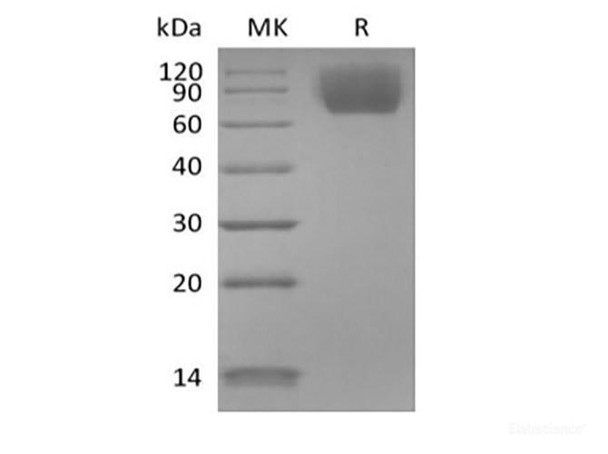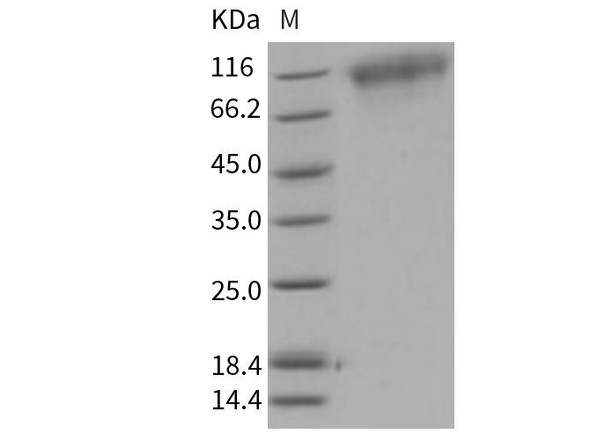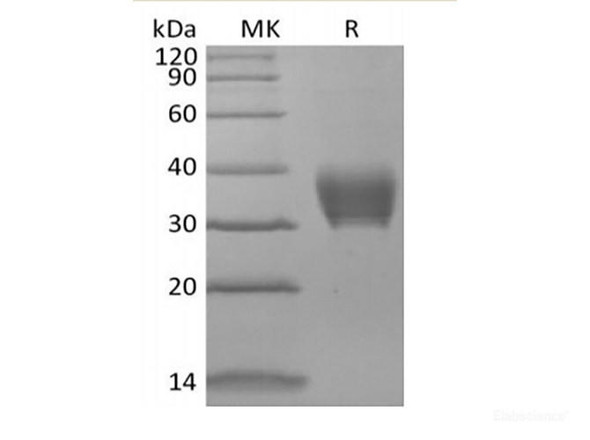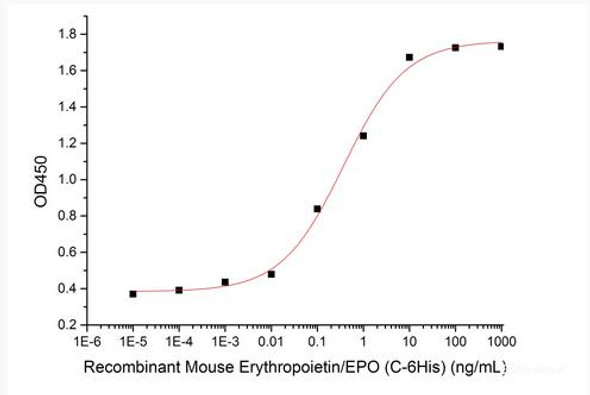Recombinant Mouse TrkC/Ntrk3 (C-6His)
- SKU:
- RPES6680
- Product Type:
- Recombinant Protein
- Species:
- Mouse
Frequently bought together:
Description
| Product Name: | Recombinant Mouse TrkC/Ntrk3 (C-6His) |
| Product Code: | RPES6680 |
| Size: | 10µg |
| Species: | Mouse |
| Expression Host: | HEK293 Cells |
| Synonyms: | GP145-TrkC, TrkC, trk-C, Neurotrophic tyrosine kinase receptor type 3, TrkC tyrosine kinase, NT-3 Growth Factor Receptor |
| Mol Mass: | 45.5 kDa |
| AP Mol Mass: | 80-110 kDa |
| Tag: | C-6His |
| Purity: | > 95 % as determined by reducing SDS-PAGE. |
| Endotoxin Level: | < 1.0 EU per μg of the protein as determined by the LAL method. |
| Bio Activity: | Testing in progress |
| Sequence: | Cys32-Thr429 |
| Accession: | Q6VNS1 |
| Storage: | Generally, lyophilized proteins are stable for up to 12 months when stored at -20 to -80°C. Reconstituted protein solution can be stored at 4-8°C for 2-7 days. Aliquots of reconstituted samples are stable at < -20°C for 3 months. |
| Shipping: | This product is provided as lyophilized powder which is shipped with ice packs. |
| Formulation: | Lyophilized from a 0.2 μm filtered solution of PBS, pH 7.4. Normally 5 % - 8 % trehalose, mannitol and 0.01% Tween80 are added as protectants before lyophilization. Please refer to the specific buffer information in the printed manual. |
| Reconstitution: | Please refer to the printed manual for detailed information. |
| Background: | Three Trk family proteins, TrkA, TrkB, and TrkC, exhibiting different ligand specificities, have been identified. TrkA binds NGF and NT-3, TrkB binds BDNF, NT-3 and NT-4/5, and TrkC only binds NT-3. The primary location of TrkC expression is in the nervous system and, specifically, in regions of the CNS. Low level TrkC expression has also been observed in a wide variety of tissues outside the nervous system. Receptor tyrosine kinase involved in nervous system and probably heart development. Upon binding of its ligand NTF3/neurotrophin-3, NTRK3 autophosphorylates and activates different signaling pathways, including the phosphatidylinositol 3-kinase/AKT and the MAPK pathways, that control cell survival and differentiation. |










